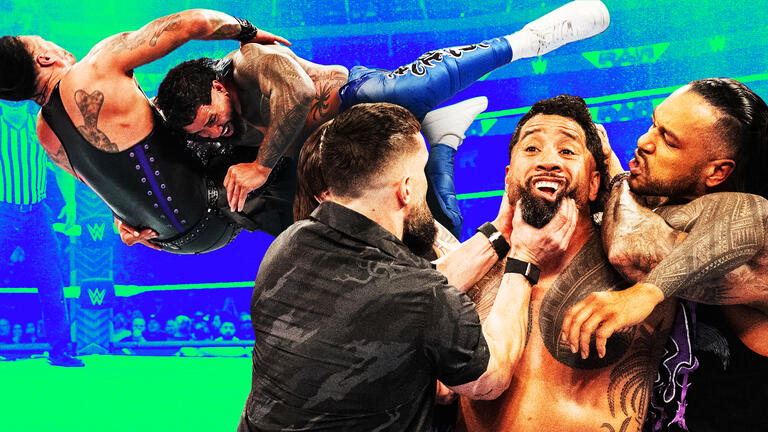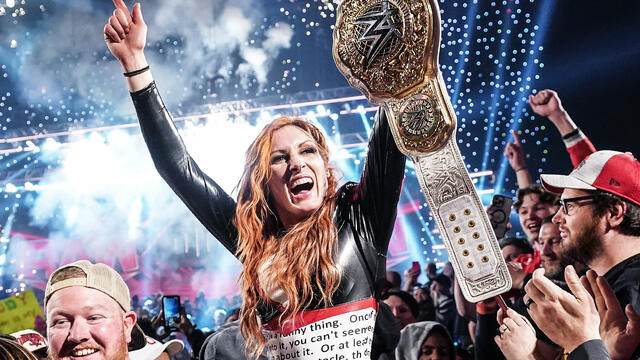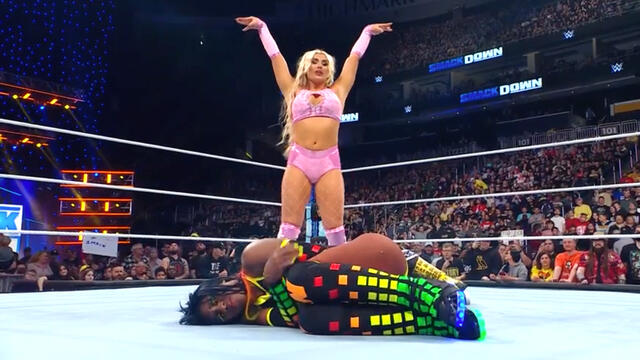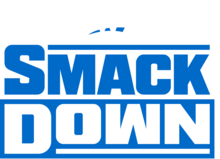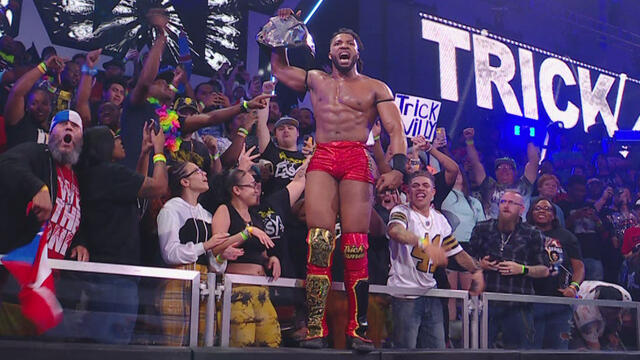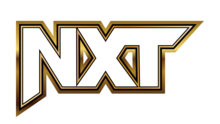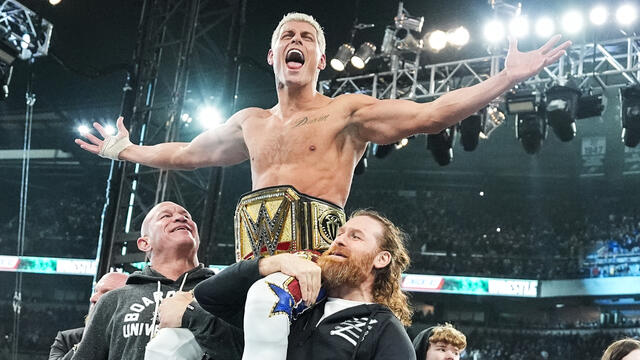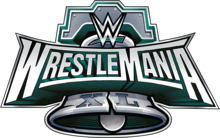
Mick Foley and Kevin Nash on Jan. 4, 1999: The night that changed wrestling

On Jan. 4, 1999, WWE and WCW were in the midst of the Monday Night War. Each week, WWE Raw is War and WCW Monday Nitro battled head to head in an industry-wide clash for wrestling supremacy. As 1998 drew to a close, WWE had finally picked up momentum in the race for ratings despite airing a taped show every other week while Nitro always ran live.
On Tuesday, Dec. 29, 1998, in Worcester, Mass., WWE taped an edition of Raw to air the following Monday on Jan. 4. In the main event of that show, Mick Foley defeated The Rock to win his first WWE Championship, a moment widely considered to be one of the most emotional in wrestling history.
WCW, in an attempt to convince fans not to change the channel, gave away the taped outcome on air. Broadcaster Tony Schiavone even gave the sarcastic remark of, “Ugh, that’ll put a lot of butts in the seats.” At that very moment, 600,000 homes changed the channel and for years afterward, signs were seen in arenas with the words: “Mick Foley put my butt in this seat.”
Meanwhile, Nitro was airing from Atlanta’s massive Georgia Dome in front of almost 40,000 fans. WCW had advertised a highly anticipated Starrcade rematch for the WCW Championship with Kevin Nash defending against Goldberg. But in a shocking turn of events, Nash was instead defeated for the title by the returning Hollywood Hogan after a mere poke of the finger from Hogan onto Nash’s chest.
The combination of WCW’s “Fingerpoke of Doom” and Mick Foley’s emotional championship victory was seen by many as a spiritual changing of the guard in the Monday Night War. WWE Classics spoke with both Mick Foley and Kevin Nash about this historical night. Hear about the night that changed wrestling from the two men who lived it.
( PHOTOS FROM JAN. 4, 1999 | VIDEOS OF JAN. 4, 1999)
WWE CLASSICS: Mick, Jan. 4, 1999, was a big night in your career. What does that night mean to you?
MICK FOLEY: In retrospect, if people say it’s the night that changed wrestling, I’ll believe it. I’m happy to take that credit, but certainly think it was a night that changed people’s perception about me within the wrestling industry.
WWE CLASSICS: Why do you think that is?
FOLEY: When the taping results came out, and there was the instantaneous switching of hundreds of thousands of TV sets, I think I went from being a highly recognized role player to a leading man in WWE. I still sometimes wonder if I wasn’t just a very good role player, but at least for a period of time, the results begged to differ.
WWE CLASSICS: Kevin, what do you think about Jan. 4, 1999, as the night that changed wrestling?
KEVIN NASH: That was the night that changed wrestling? Oh, I disagree.
WWE CLASSICS: Please elaborate. How do you mean?
NASH: The year that [Mike] Tyson showed up for WrestleMania [XIV] in ’98 changed wrestling. Who thinks Jan. 4, ’99, changed wrestling? A lot of [know-it-all fans]? It was already back and forth at that point with who won Mondays, so how did that change anything?
WWE CLASSICS: You could say, in a spiritual sense, the momentum went to WWE.
NASH: I don’t believe in it. There’s nothing spiritual about it. When Tyson came to WrestleMania, Vince knew that everybody was going to be watching that WrestleMania. They put a movie-trailer-quality piece before every match that caught everybody up to date if you hadn’t been watching the show every week. It got a great buyrate. When I watched that WrestleMania, I said, “We’re dead in the water.” That’s what changed wrestling.
WWE CLASSICS: Can’t disagree with that.
NASH: You’re not talking to some [know-it-all]. You’re talking to somebody that was in the process, in the middle of it. We could never out-produce Vince. Our production was never anywhere near Vince’s production. And then Vince went edgier than we were, and all of a sudden standards and practices started pulling the cord back on us. Raw became the hip show and we became the un-hip show.
WWE CLASSICS: So you don’t think Jan. 4, 1999, played a big role in the Monday Night War?
NASH: The “Fingerpoke of Doom” was nothing. The “Fingerpoke of Doom” was just trying to realign The nWo to face off with Goldberg and Goldberg ended up getting injured. I love how the story of my life is how I beat Goldberg to turn around and take the “Fingerpoke of Doom” a week later. Boy, that did me a lot of good. When you look at how people perceive the whole thing, it’s ridiculous.
WWE CLASSICS: Why do you think fans were upset with it?
NASH: The number one problem people have with the “Fingerpoke of Doom” is it “got” everybody. And nobody likes to be “got.” So, of course, [know-it-alls] are going to hate it the most because they never called it. They didn’t see anything coming.
WWE CLASSICS: How far in advance was the “Fingerpoke of Doom” planned? Was it because you heard the Raw taping results of Mick winning the title?
NASH: Oh, we didn’t care what WWE was doing. We were more worried about when Sable would come out, because those quarter-hour ratings of Raw would go through the roof. It was planned for about two or three weeks. It got to the point where people were disenchanted because Goldberg was undefeated. When we went to WWE’s territory in Salisbury, Md., people were chanting “Goldberg sucks.” They started pumping in the “Goldberg” chants and it became a situation where they were trying to fabricate a situation that had been organic.
WWE CLASSICS: Mick, was there a consciousness within WWE at the time that Raw needed to do things to win the ratings war against Nitro? Was the WWE locker room aware of what Nitro was doing?
FOLEY: Oh sure, yeah. I wasn’t aware about what had happened on Nitro that night until I saw it play out on Jan. 4. I think too much of the credit goes to me individually when a lot of the credit should go to WCW for putting on a really bad show that night. The arresting of Goldberg I thought was terrible. And for a long time, I thought WCW had the hot hand in the wrestling war. I would watch their show and go, “Wow, they’ve just got that edge that we don’t seem to have.” But by the time the ratings tide turned in our favor, I believe we had the better show for well more than a year. I’m not picking on Nitro, because they had some great shows, but that particular night stood out to me for being particularly bad.
WWE CLASSICS: Why was that episode of Nitro so noteworthy?
FOLEY: I always say there’s no steadfast formula for getting a show right. There are some nights when Raw seems to go better than others. The show hooks people and the action is compelling. There are other nights that doesn’t seem to go so well. For example, the dramatic return of Santa Claus was one of my all-time favorite Raws, and it seemed to be a night where everything was just right for that particular show. But I think this was a combination of WCW getting everything wrong on the wrong night and WWE getting everything right on the right night.
WWE CLASSICS: Kevin, is there any part of you that wishes instead of doing the “Fingerpoke of Doom” you did a wrestling match against Hogan or a rematch from Starrcade against Goldberg?
NASH: It wouldn’t have mattered. Goldberg still would’ve put his hand through the limo window [and been injured] in a couple of months, so what’s the difference? A bunch of [know-it-all fans] wouldn’t be as mad?
WWE CLASSICS: So you don’t think that if Nitro had put on a different main event, fans would not have changed the channel to see Mick win the title and Nitro would have possibly moved in a different direction?
NASH: They already knew they wanted to watch Mick win the title over me wrestling Goldberg or Hulk. That was a decision that was already made.
WWE CLASSICS: Mick, WCW spoiled your title win before it happened, but the moment still resonated with fans. Why do you think that is?
FOLEY: I think until that moment there was maybe not so much a definite standard to what a champion should look like, but a definite standard to what a champion should not look like. And yet, I had built up an incredible amount of goodwill and credibility with the WWE Universe. People had watched me work my way up from the Clarksburg Armory to Madison Square Garden. I believe people were ready to accept it. And ready to believe in it.
WWE CLASSICS: How did you feel about Tony Schiavone’s comments?
FOLEY: It hurt at the time. When I heard it, it hurt. But no doubt about it, it turned out to be the best thing that could’ve possibly happened to me.
WWE CLASSICS: When was the first time you saw Eric Bischoff following that night?
FOLEY: I actually saw him on an airplane only three weeks later. I was coming back from the Royal Rumble in January 1999 and he was traveling somewhere else. I think we just exchanged formalities. Any bitterness I had about it was kind of erased when the ratings came out. I actually waited until the ratings came out until I called Tony Schiavone and I just left a purposely very forlorn message saying, “Listen, it’s Mick Foley. I heard what you said. I honestly don’t know why you guys would do that to somebody who worked so hard for so long for your company. And in truth, it probably just hurt your ratings. But anyway, I just thought I’d say hello.”
WWE CLASSICS: Did you hear back from him?
FOLEY: Tony ended up calling me back and my wife answered the phone. She came to me and said, “It’s Tony Schiavone and he sounds really sad.” I knew as soon as he made that comment on air that it was probably put in his ear by Bischoff. Tony and I had a nice little conversation, but honestly I’m not bitter toward the players of that evening, because it all combined to make for the best possible scenario.
WWE CLASSICS: Did Eric ever apologize for those remarks?
FOLEY: He never apologized on a personal level, but he said he wouldn’t do it again if it was his decision. He did what he thought he had to do for his company. I think there should be exceptions. I think they should have factored in how hard I worked for those guys. I think the sarcastic “Wow, that’ll put a lot of butts in the seats” was really the one that hurt. It was like dismissing my entire career as a joke. And it turned out the joke was on them.
WWE CLASSICS: Kevin, what are your overall impressions of that night in general?
NASH: It’s like a situation where you call a play in football and it doesn’t work out. In retrospect you wouldn’t want to run that play, but you don’t get that chance. Live TV is live TV. You don’t get a replay. You don’t get any of those in life.
WWE CLASSICS: Looking at WCW as a whole, do you think the company was closed because it wasn’t run well or do you think it was a series of specific decisions?
NASH: When the dot-com bubble burst, we weren’t owned by Time Warner. We were owned by AOL. What do you think happened when the stock went from like $70 to $17? So was the closing of WCW from the “Fingerpoke of Doom”? You have to realize, you can’t live in a wrestling bubble. They didn’t just sell WCW. They sold the Atlanta Braves, the Atlanta Hawks, the Atlanta Thrashers, the building that they played in. They sold any tangible asset they had because they were going under. WCW being shut down was just set up to fail and to look like it never made a dime.
WWE CLASSICS: Do you think anything could have been done differently to prevent WCW from being sold to WWE?
NASH: Yeah, if the stock had stayed strong. It was always a redheaded stepchild in the viewing of Time Warner. Turner Home Entertainment did a made-for-TV movie and they spent $65 to $70 million shooting the film. It did like a 1.1 rating. We were doing fives to sevens after a $60 million budget for the year. But they didn’t want to talk about wrestling. Ted Turner himself was never going to let anything happen to wrestling. Once he lost power, that was it.
WWE CLASSICS: Mick, that speech you gave after you scored the pinfall was very emotional.
FOLEY: I never, not for one second, thought about being WWE Champion even when I was a kid with the weight belt with the picnic plate tied around it as a title. When I started wrestling, I kind of accepted that was not going to be in the cards. I was going to be a guy that held the tag team championships in Japan. I never saw the whole WWE Champion thing happening.
WWE CLASSICS: What’s going through the mind of Mick Foley at that moment as D-Generation X is lifting you on their shoulders?
FOLEY: It was all surreal. Until I actually won it, I didn’t actually realize what a big deal it was and what a big honor it was. We didn’t know the ramifications in terms of the ratings at the time. It was a great feeling. It felt like I had won a lifetime achievement award as opposed to a World Championship.
WWE CLASSICS: Is there a part of you that wishes you could have won that title as Cactus Jack instead of Mankind?
FOLEY: No, because Michael Cole did an extremely good job at narrating the moment. It was Mick Foley winning it. It wasn’t Mankind the character. He went out of his way to say “Mick Foley” a number of times. He tied that all in. I never got the feeling that it was a character winning the championship. It always felt like my victory.
WWE CLASSICS: Michael Cole’s voice even cracks. It’s very emotional.
FOLEY: People forget how good Cole can be. I bet if you asked him about his top 10 favorite calls, that night would probably be on the list.
WWE CLASSICS: Kevin, do you have any final things to say about the “Fingerpoke of Doom” or WCW in general?
NASH: Look, if Napoleon had to do it over, I don’t think he would’ve went to Waterloo. I don’t think Custer would’ve went to Little Big Horn. I don’t think Hitler would’ve went to Russia. But all those decisions were made, and that’s why it’s called history.
WWE CLASSICS: Mick, do you think if Nitro had done something different for their main event that the night, the course of the Monday Night War would have gone differently?
FOLEY: That’s tough to say. I think if they had just gone with a strong build-up to a match everybody wanted to see, which was Goldberg vs. Nash live at the Georgia Dome, they would have won that rating. I think WWE would have caught them eventually and I think WCW would have fallen victim to the same mistakes they eventually did fall victim to, regardless of that evening. But if they had put on a good show with a good build to a match that everybody wanted to see and had not given away the outcome to our show, I believe they would have won the ratings and Jan. 4 would have been just another night in the wrestling business.
WWE Shows Latest Results
SmackDown results, April 19, 2024: Tiffany Stratton introduces Bayley and Naomi to Tiffy Time with a sneak attack
Full ResultsNXT Spring Breakin' 2024 Week One results: Trick Williams slays The Mad Dragon to become NXT Champion
Full Results



